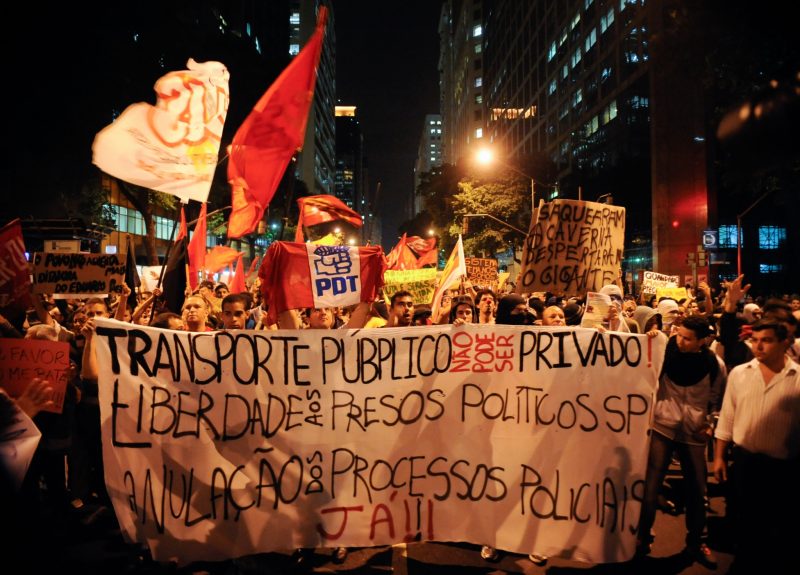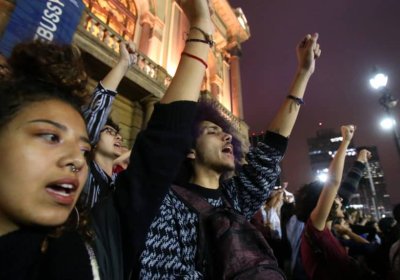The unexpected strength of far-right demagogue Jair Bolsonaro in the October 7 Brazilian presidential elections sent shockwaves throughout the country, writes James N Green.
Workers' Party (PT)
For those who have been following Brazil closely in recent years, the case against former President Luiz Inacio Lula da Silva is clear-cut. And no, it’s not about tackling corruption, it’s about subverting Brazilian democracy for the second time in two years.
Brazilian professor and researcher Sabrina Fernandes discusses former president Luiz Inacio “Lula” da Silva’s January 24 corruption trial and the country’s forthcoming October presidential election.
Brazil's trade union confederations have called for a new general strike to shut down the country’s largest cities on June 30 in protest at neoliberal labour and retirement pension reforms, as well as to demand the resignation of unelected president Michel Temer who is currently embroiled in several corruption controversies.
 Protests triggered by public transport fare increases in 2013.
Protests triggered by public transport fare increases in 2013.
Less than two years after Workers’ Party (PT) candidate Dilma Rousseff was re-elected as Brazil’s president, she was removed from office by the Brazilian senate.
The Brazilian right, which controls the senate, carried out a constitutional coup. In the process, they revealed their contempt for democracy.
South America’s largest country, Brazil, has been rocked in recent months by a political crisis, partly fuelled by mass protests calling for the removal of centre-left President Dilma Rousseff. The protests come as the country officially moves into recession, with Brazil’s economy expected to contract by 2% this year. Brazil has been governed by a Workers’ Party (PT)-led coalition for over a decade, firstly under Luiz Ignacio “Lula” da Silva and now Dilma, as she is commonly known.
- Previous page
- Page 2




